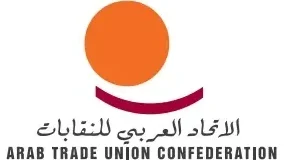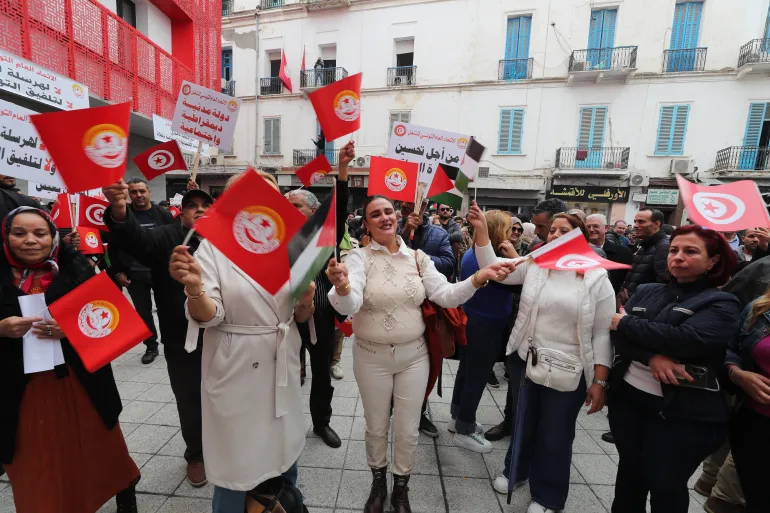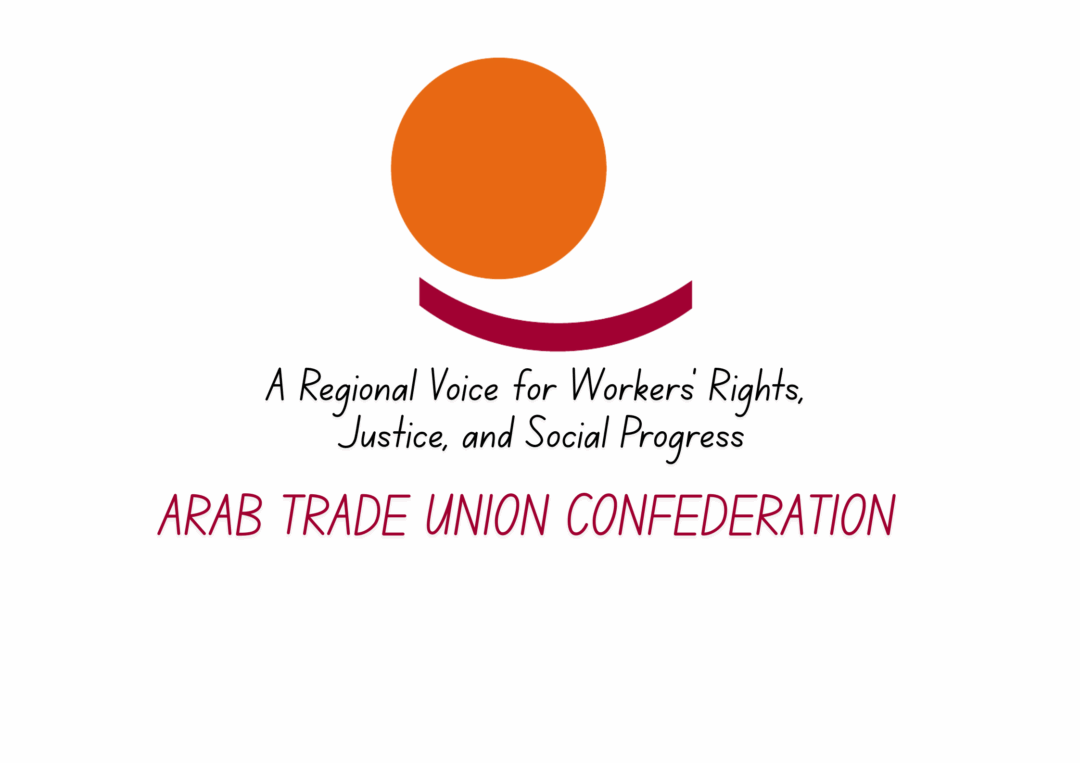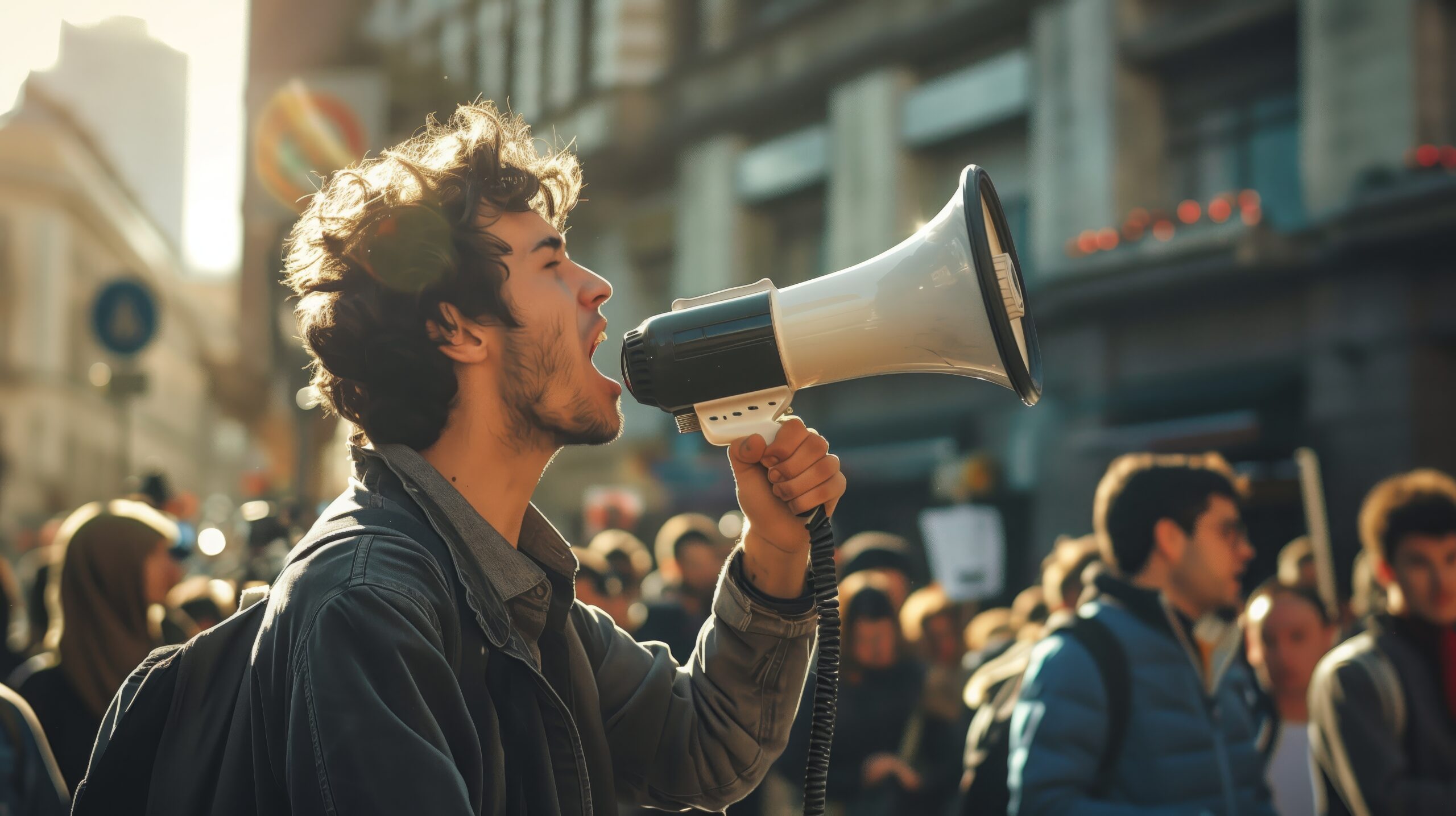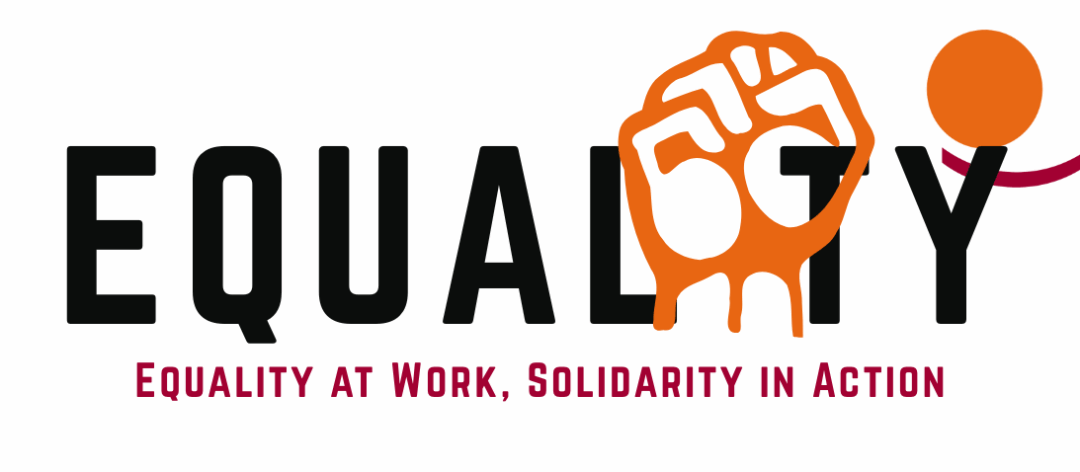
The Equality Forum: Advancing Workers’ Rights and Social Justice in the Arab Region
A Platform for Inclusive Labor Rights
The Equality Forum is a specialized labor platform dedicated to promoting workers’ rights and advancing social justice in workplaces across the Arab region. It serves as a regional space for trade unionists from diverse sectors and backgrounds to convene, share experiences, and strategize collectively. By deliberating on common challenges, from unsafe working conditions to unfair wages, participants develop unified approaches to improve labor conditions and protect the rights of all workers. Central to the Forum’s mission is a commitment to inclusivity and equality, ensuring no individual or group is left behind in the pursuit of fair and dignified work. This aligns with the UN’s principle of “leaving no one behind,” emphasizing that labor rights and protections must extend to everyone, including those in vulnerable or marginalized positions. To fulfill its mandate, the Equality Forum undertakes a range of initiatives focused on awareness-raising, support, and capacity-building. It conducts broad campaigns to educate all workers, without discrimination, about their fundamental labor rights, such as the right to a fair wage, safe and healthy working conditions, social protection, and the freedom of association and collective bargaining. The Forum provides practical guidance and legal support to workers who face structural, administrative, or legal barriers in claiming their rights (for example, navigating cumbersome labor courts or contesting unjust dismissals). By fostering solidarity networks and encouraging union organizing, the Forum empowers workers to better advocate for themselves. Through workshops, seminars, and dialogue sessions, it builds the capacity of workers and their unions, amplifying their voices in public discourse and policy forums. These efforts contribute to the broader objective of building an equitable, inclusive, and socially just society in the Arab region, a society grounded in the rule of law, respect for human rights, and decent work for all.
Alignment with Sustainable Development Goals (SDGs)
In alignment with international commitments, the Equality Forum’s work supports several United Nations Sustainable Development Goals (SDGs), particularly those related to labor rights, equality, and social protection. Key contributions include:
- SDG 8 – Decent Work and Economic Growth: The Forum advocates for decent working conditions, fair wages, and stronger labor protections. This is critical in a region that currently faces the highest unemployment rates in the world, especially for women and youth Even before the COVID-19 pandemic, 14.3 million people in Arab countries were unemployedMoreover, many who are employed work in precarious arrangements: about two-thirds of all jobs in the region are informal with no stable contracts or benefits. By pushing for formal job creation, enforcement of labor standards, and safer workplaces, the Forum supports inclusive and sustainable economic growth and the creation of productive, dignified employment opportunities across all segments of society.
- SDG 10 – Reduced Inequalities: A core focus of the Forum is to reduce income and opportunity disparities by defending workers’ rights and promoting workplace equality. In practice, this means challenging structural barriers that perpetuate exclusion and marginalization. For instance, less than one-third of the region’s labor force is enrolled in social security systems, a sign that the majority of workers (often those in informal or low-wage jobs) lack basic protections. The Forum campaigns for extending social protection floors and fair policies to all workers, so that economic growth benefits everyone. It also fights discrimination in wages and hiring, and supports migrant workers’ rights to equal treatment. By addressing these gaps, the Forum helps curb inequality within and among countries in the Arab region.
- SDG 5 – Gender Equality: Recognizing the persistent challenges faced by women in the workforce, the Forum places a special emphasis on advancing women’s rights and eliminating gender-based discrimination. The Arab region has the world’s lowest female labor force participation rate – only about one in five women participates in the labor force, which is roughly a 50-percentage-point gap compared to men’s participation. Women who do work also face the highest female unemployment rates globally, with women’s jobless rate about 11 percentage points higher than men’s. Beyond employment numbers, women are underrepresented in decision-making roles at work – they hold far fewer business ownership and top management positions than men. The Forum tackles these issues through initiatives that promote equal pay for equal work, maternity protections, and women’s leadership in unions and workplaces. By empowering women with training and leadership opportunities, and advocating for laws against sexual harassment and discrimination, the Forum supports SDG 5’s goal of achieving gender equality in the world of work.
- SDG 3 – Good Health and Well-Being: Ensuring healthy lives and well-being includes occupational safety and health for workers. The Forum contributes by raising awareness about safe and healthy working environments and pressing employers and governments to uphold rigorous occupational safety and health (OSH) standards. Many workers in the Arab region, especially those in construction, manufacturing, or agriculture, face hazardous conditions and long hours that can lead to injury or illness. The Forum’s campaigns for better health and safety laws, enforcement of safety regulations, and access to healthcare for workers help improve physical and mental well-being for all workers. This aligns with SDG 3 by seeking to reduce work-related injuries and illnesses and by promoting a healthier workforce.
- SDG 16 – Peace, Justice, and Strong Institutions: The Forum promotes social justice, accountability, and the rule of law in labor relations, which supports the development of inclusive and transparent institutions. Notably, the Arab region has significant room for improvement in upholding workers’ rights and freedoms. According to the International Trade Union Confederation, the Middle East and North Africa remains the world’s worst region for workers’ rights, with most countries in the region providing little to no guarantee of basic labor rights. In some conflict-affected states like Yemen or Syria, ongoing instability has left workers without even the most fundamental protections. By advocating for the enforcement of labor laws, freedom of association, and access to justice for workers (such as the right to sue for unpaid wages or unfair dismissal), the Forum contributes to building stronger institutions. These efforts foster more peaceful industrial relations and ensure that workers can seek redress through legal means, thus aligning with SDG 16’s aim to provide justice for all and build effective, accountable institutions.
Leaving No Worker Behind: Inclusive Labor Rights Initiatives
Guided by the principle of “leaving no one behind,” the Equality Forum – together with the broader Arab labor movement – implements a comprehensive set of initiatives to ensure full inclusion and protection of all workers, particularly those who are most vulnerable or marginalized. These initiatives include:
- Empowerment of Marginalized Workers: The Forum gives special attention to groups of workers who often face additional hardships or exclusion, such as migrant workers, women, youth, and older workers. Through targeted training programs, awareness campaigns, and capacity-building workshops, these workers are equipped with the knowledge and tools to assert and defend their rights. For example, migrant workers form a substantial part of the labor force in the Arab region – in the Gulf Cooperation Council (GCC) countries, migrants comprise between 76% and 95% of the workforce, predominantly in low-paid and precarious jobs. Yet migrants often have limited legal protections or voice in the workplace. By empowering such groups – including young workers facing high unemployment and women concentrated in the informal sector – the Forum helps them overcome barriers and become active agents in the labor movement.
- Promotion of Inclusive Social Dialogue: The Forum actively encourages constructive dialogue among workers, trade unions, employers, and government bodies to ensure all voices are heard in decision-making. This is especially important for workers traditionally excluded from formal negotiations (for instance, informal sector workers or migrants). Inclusive social dialogue means that workplace policies and national labor reforms reflect the needs of all In several countries, independent unions are currently curtailed – for instance, some Arab states impose outright bans or severe restrictions on freedom of association, preventing workers (especially migrants) from organizing freely. The Equality Forum counters this by fostering alternative avenues for dialogue (such as community consultations and multi-stakeholder forums) and by advocating for legal reforms to enable free and fair union representation. Ensuring that even the most marginalized workers have a seat at the table leads to more equitable agreements and labor policies.
- Provision of Legal Support: Access to justice is a critical gap for many vulnerable workers. The labor movement, supported by the Forum, strives to guarantee legal assistance for any worker facing violations of their rights – especially those lacking the financial resources, legal literacy, or institutional backing to navigate complex legal systems. Given that less than one-third of workers in the region are covered by formal social security systems, a vast number of workers have no institutional support if they are unfairly treated or dismissed. To bridge this gap, the Forum and its partners provide pro bono legal clinics, hotlines, and advisory services to help workers file complaints, understand their contracts, and pursue remedies through labor courts or mediation. By empowering workers with legal support, the Forum helps level the playing field and holds employers accountable under the rule of law.
- Education and Awareness-Raising: The Forum leads broad educational campaigns to inform all workers about their rights and the mechanisms available to defend those rights. These campaigns are designed to reach workers in all communities and sectors, including those in remote rural areas, employed in the informal economy, or in domestic work – individuals who may not have access to traditional information channels. The Forum produces easy-to-understand guides on labor laws, runs awareness workshops in different languages (considering the large migrant worker populations), and uses media and social networks to spread knowledge of workplace rights. By increasing overall awareness – for instance, informing workers about minimum wage regulations, overtime pay, or how to report safety hazards – the Forum enables individuals to recognize violations and take action. In turn, an informed workforce is better equipped to organize and insist on fair treatment, which strengthens the labor movement as a whole.
- Collaboration with Civil Society Organizations: To extend its reach and impact, the Equality Forum forges partnerships with civil society organizations that work on labor rights, human rights, and social protection. These can include human rights NGOs, women’s organizations, migrant community associations, and research institutes in the Arab region. Such alliances amplify collective efforts – for example, joint campaigns with human rights groups can spotlight abusive working conditions or child labor, while partnerships with development NGOs can support skills training for disadvantaged workers. By creating a broad coalition, the labor movement ensures that the most vulnerable workers are not overlooked. These networks also help in establishing early-warning systems and support mechanisms – if a group of workers is at risk (say, mass layoffs or a factory accident), the coalition can mobilize resources (legal aid, emergency funds, media attention) more rapidly. Collaboration beyond the traditional union structure thus strengthens solidarity and extends protections to workers who need it most.
- Development of Inclusive Labor Policies: A major priority for the Forum and its allies is advocating for labor laws and policies that reflect the diversity of the workforce and address the needs of those in non-traditional or precarious employment. Many Arab countries’ labor codes historically catered mainly to formal public- or private-sector workers, leaving out groups like agricultural laborers, domestic workers, gig economy workers, or refugees in informal jobs. The Forum works with legislators, ministries, and international organizations (like the International Labour Organization) to help draft and promote reforms that close these gaps. For instance, it campaigns for the inclusion of domestic workers under labor law protections, for extending minimum wage and social security coverage to informal and gig workers, and for simplifying the registration of unions in sectors where they are currently not allowed. By pushing for inclusive policies – such as anti-discrimination statutes, maternity leave in all sectors, and legal recognition of informal worker associations – the Forum helps ensure that labor regulations keep pace with the realities on the ground. These policies aim to protect workers who face intersecting vulnerabilities (for example, a young migrant domestic worker who might be excluded on multiple fronts) and bring them under the umbrella of legal protection.
- Promotion of Diversity and Representation: The Equality Forum advocates for a labor movement that truly represents the diversity of society. This involves promoting inclusive leadership structures within trade unions and ensuring meaningful representation of underrepresented groups – such as women, young workers, ethnic minorities, and persons with disabilities – in union governance and decision-making processes. Currently, women and other marginalized groups remain underrepresented in many unions. For example, women make up only about 20% of trade union membership in countries like Jordan and Bahrain, and in one country (Lebanon) women are effectively absent from the leadership councils of over 600 unions. To change this, the Forum supports mentorship programmes, leadership training for women and youth, and reforms to union bylaws (e.g. quota systems or dedicated youth/women committees) that promote diversity in leadership. A more representative union movement is more responsive to the needs of all workers. By amplifying the voices of those who have been historically sidelined, unions can negotiate for benefits and protections (such as childcare support, equal pay, or disability accommodations) that benefit a broader base of workers. Ultimately, fostering diversity and inclusion within unions not only strengthens internal democracy but also enhances the credibility and social support for the labor movement at large.
Through these multifaceted initiatives, the Equality Forum and its partners in the Arab trade union movement strive to ensure that no worker is left behind. By empowering the most vulnerable, promoting fair dialogue, and pushing for inclusive laws and institutions, they contribute to building a more equitable and socially just Arab region – one where every worker, regardless of background or status, can enjoy their rights and a life of dignity on the job. This vision resonates strongly with international labor standards and the broader sustainable development agenda, reinforcing the idea that decent work and social justice are fundamental pillars of peace and prosperity in the society.
